Energy-Saving HVAC Tips for Summer Cooling
Posted on by WestAIR Heating & Cooling

So far, June has given Minnesotans multiple occasions to fire up the A/C. With the dog days of summer yet to come, plenty more hot and humid days await. But don’t sweat it – WestAIR is here to help! We put together these energy-saving HVAC tips to help minimize your utility bills this cooling season.
Prevent Issues Later with Professional Service Now
Having an HVAC technician inspect, service, and clean your system now helps ensure peak performance and prevent costly repairs down the road. If you haven’t already, contact your local HVAC professional about the following services.
- Annual preventative maintenance: Give your system a tune-up before the season to ensure optimal performance and efficiency. During service, the technician can also catch small issues before they become expensive repairs and help you decide if it’s time for an upgrade.
- Duct cleaning: Ductwork should be cleaned annually as dirt, pollen, hair, dust, and other particles collect inside and reduce indoor air quality over time. They can also clog up the system if left long enough, decreasing its efficiency and increasing energy bills.
Optimize A/C Performance with Tips Around the Home
You don’t have to shut down your HVAC system and suffer through the heat to cut costs. Instead, follow these simple tips and get the most out of your A/C this summer.
- Keep vents clean and clear. Blocking vents with rugs, furniture, and other items decreases efficiency. Make sure cool air can circulate freely, and vacuum vents regularly to clean away dust, dirt, and other debris.
- Maintain a clean air filter. Filters prevent debris from getting into your HVAC unit and naturally become dirty or clogged, which adds stress onto the system. To avoid issues, change (or clean, if re-usable) your filter monthly.
- Seal the home. Don’t let cool air escape or heat enter whenever possible. Caulk any cracks or seams around the home; lock windows shut to ensure a tight seal; draw blinds and curtains to prevent any natural heating from sunlight.
- Be smart about electronics. Unplug chargers, small appliances, and other electronics when they’re not in use. Also, avoid placing heat-generating devices like lamps and TVs near thermostats – the heat can make it seem like the room is hotter than it really is and trick the thermostat into working harder to cool the home.
- Grill outside or plan cold meals. Cooking in the oven or on the stove produces heat and can raise the temperature in your kitchen by up to 10 degrees. Take advantage of the summer weather and fire up the grill, or plan some cold meals like salads and sandwiches.
- Use ceiling fans. Set ceiling fans to spin counterclockwise so they blow air straight down. This will keep cool air low and create a wind chill effect, allowing you to turn the thermostat up a few degrees.
- Consider installing a programmable thermostat. While proper thermostat management can help keep bills low, constantly changing the thermostat can impact your HVAC system’s efficiency and health. Programmable thermostats let you pre-set custom temperature and humidity levels for multiple days instead of monitoring it manually.
Lower Utility Bills with Strategic Water Use
According to the U.S. Department of Energy (DOE), 18 percent of your home’s energy consumption comes from water heating. Try these water use strategies to help cut utility costs throughout the summer months.
- Wash clothes with cold or warm water. According to the U.S. Environmental Protection Agency (EPA), water heating accounts for 90 percent of the energy used by your washing machine. Avoid washing with hot water whenever possible. Also, line-dry laundry outside to save more energy and reduce indoor humidity.
- Take cold(er) showers. Hot showers require more energy, and the steam they produce increases humidity. Take colder, shorter showers to lower costs and help maintain indoor air quality.
- Water the lawn and garden at dawn or dusk. Water usage tends to increase in the summer, especially outdoors due to lawn, garden, and landscape watering. Do these tasks in the early morning or at dusk to prevent the water from quickly evaporating in the summer heat. This will help cut costs and keep your yard and garden healthy.
With July and August still ahead, we know the cooling season is far from over here in Minnesota. Use these energy-saving HVAC tips to minimize utility costs while keeping your home cool and cozy this summer. And for all of your heating and cooling needs, rely on the residential HVAC experts at WestAIR for thorough, high-quality service.
Contact us today to schedule service and learn more.
This entry was posted in AC,Air Conditioning,Cooling,Duct Cleaning,Energy Savings,Tips and tagged air conditioning, Air filters, Cooling Mistakes, Cooling Tips, Duct cleaning, Energy efficiency, Energy efficient, Energy savings, Energy-Saving HVAC Tips, Energy-saving tips, Family Health, Home Cooling, Homeowner Education, Homeowner Tips, HVAC Education, HVAC Maintenance, HVAC Mistakes, HVAC Safety, HVAC tips, Indoor air quality, Preventative Maintenance, Summer Cooling, Summer HVAC Tips
Common Summer HVAC Mistakes to Avoid
Posted on by WestAIR Heating & Cooling

Summer weather is finally upon us, and we know that 2020 won’t be like every other year. Air conditioners play a vital role here in Minnesota and keeping them running properly will be even more important this time around. To help, we gathered a list of common summer HVAC mistakes to avoid as you keep your home feeling cool and cozy.
Neglecting Regular Maintenance
Regular HVAC maintenance helps prevent inconvenient breakdowns that leave you without cool, comfortable air and with an expensive repair to get it back. Avoid these mistakes to help keep your system running smoothly all season long.
- Not scheduling preventative maintenance. Don’t wait until you need an HVAC professional to call one. Have a regular preventative maintenance check early on to promote optimal performance throughout the summer.
- Running a system with dirty ducts. Dirt, dust, pet hair, and other harmful particles settle into your ductwork over time and get blown into the air you and your family breathe. Left long enough, they can also clog the system, forcing it to work harder and hiking up your utility bills as a result. Annual duct cleaning is vital to the health and efficiency of your HVAC system, as well as indoor air quality.
- Not keeping a clean filter. Just like ductwork, dirty or clogged air filters cause added stress on your HVAC system and decreased air quality. Plan to change your air filter (or clean if re-usable) monthly.
Having an Oversized System
Bigger isn’t always better when it comes to HVAC. Proper air conditioning will circulate cool air and remove humidity simultaneously and evenly – if the unit is too big, it will cool the home quickly without removing enough moisture from the air. As a result, you won’t feel comfortably cool and may turn the thermostat even lower, working the system harder and increasing energy use.
If your A/C isn’t cooling the home how you feel it should, consult your local HVAC experts about possibly upgrading to a right-sized system.
Closing Unused Air Vents
Some homeowners worry about cooling rooms that aren’t used on a daily basis. However, as mentioned above, properly sized systems are designed to evenly distribute cool air to the entire home. While it may seem logical to close unused vents to focus on cooling high-traffic areas, closing unused air vents decreases system efficiency and increases its workload.
Improper Thermostat Management
Altering the thermostat setting can be a touchy subject in the home, and doing so can impact the efficiency and health of your system. Remember to avoid these common mistakes.
- Don’t crank the thermostat. You may be tempted to turn the temp extra-low to cool the home quickly, but this method actually decreases efficiency and adds stress onto the system. Be patient. Set the temperature to a comfortable level and let it run at its optimal rate.
- Don’t pay to keep an empty house cool. No need to use extra energy to keep the house comfy if no one’s home. Turn the thermostat up when you’re gone for work or out of town, and turn it back down when you return.
- But don’t turn the system off. Turning the system completely off forces it to work harder to cool the home when it’s fired back up. Unless you’re leaving for an extended trip, keep the A/C running at a higher temperature.
Consider Installing a Programmable Thermostat
Programmable thermostats let you customize and set temperature and humidity settings for multiple days, eliminating the need to manually monitor them throughout the day. Contact us to learn more about optimizing your summertime cooling performance and schedule with a new smart thermostat.
Crowding/Obstructing the Outdoor Unit
Outdoor units need to easily draw in air to operate efficiently.
Clear any clutter and obstructions within two to three feet of the unit and be
sure to keep it clean of grass clippings, dirt, and other debris throughout the
summer.
Not Properly Sealing the Home
It’s a pretty simple concept: Keep cool air from escaping and heat from entering the home. Be mindful of these simple mistakes that impact your home’s cooling comfort and costs.
- Neglecting leaks and drafts. Inspect windows, doors, and exterior walls and seal or caulk any small cracks or gaps that could let cool air out and warm air in.
- Leaving windows unlocked and uncovered. Even shut windows can have small leaks, so lock them to ensure a tight seal. During the day, use curtains and shades to block direct rays of sunlight from heating your home.
Not Managing Indoor Humidity
Humidity plays a crucial role when it comes to home comfort and air quality. While HVAC systems pull moisture from the air, there are many things you can do to help reduce humidity in your home, such as taking cold(er) showers, using exhaust fans, and installing a dehumidifier to work in conjunction with your air conditioner.
Minnesota summers provide amazing opportunities to get outside and enjoy nature’s beauty, but we all know the importance of having a cool, comfortable home to relax in. Keep these common summer HVAC mistakes in mind to help avoid any issues with your system this cooling season.
As your residential HVAC experts, WestAIR is proud to reliably serve all your heating and cooling needs. Contact us today to schedule service and learn more.
This entry was posted in AC,Air Conditioning,Cooling,Duct Cleaning,Energy Savings,Indoor Air Quality,Repairs,Tips and tagged air conditioning, Air filters, Cooling Mistakes, Cooling Tips, Duct cleaning, Family Health, Family Safety, Home Cooling, Home Safety, Homeowner Education, Homeowner Tips, HVAC Education, HVAC Maintenance, HVAC Mistakes, HVAC Safety, HVAC tips, Indoor air quality, Preventative Maintenance, Summer Cooling, UV Light, WestAIR Heating & Cooling
Tips for Controlling Spring Allergies at Home
Posted on by WestAIR Heating & Cooling
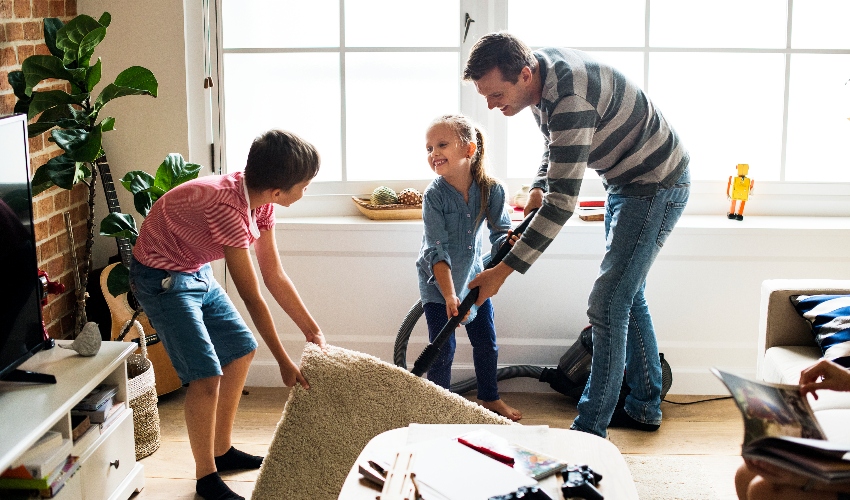
Seeing warmer weather and longer days is bittersweet for allergy sufferers. Spring may be in the air, but so are pesky allergens. As we spend more time in our homes during the COVID-19 pandemic, indoor air quality becomes more important than ever. Use these helpful tips for controlling spring allergies at home to stay healthy and comfortable.
Change Shoes and Clothing After Being Outdoors
Controlling allergies begins with limiting exposure to allergens. Limit your time outdoors whenever possible. If you do venture out, don’t wear the same clothing and shoes around your home. Dirt, dust, pollen, and other irritants can cling to you and your wardrobe. Avoid tracking them around by changing as soon as you return home.
Dust, Vacuum, and Mop Regularly
Dust and allergens will settle on the surfaces of your home. Try to clean them at least weekly, and more often if you are leaving windows and doors open.
Have Your Ductwork Cleaned
Air ducts transport fresh air between your home and HVAC system, and over time will collect dust, pollen, and other airborne particles that travel through them. Having them cleaned annually is vital to indoor air quality. Schedule a professional duct cleaning service to help ensure you’re ready for the season.
Maintain a Clean Air Filter
The air filter blocks airborne irritants from getting into your system. However, it becomes dirty and less effective over time. If left long enough, the filter can also become clogged and make your system work harder, causing higher bills and faster wear and tear. Change (or clean it if re-usable) your air filter monthly to keep the system running properly.
Install an Air Cleaner
The name says it all. An air cleaner uses a filter to trap up to 97 percent of airborne bacteria, mold, dander, and other pollen-sized irritants. It can also eliminate viruses, kill germs, and neutralize odors and fumes.
Invest in Ultraviolet (UV) Light Air Purification
Breaking through an organism’s cell wall to destroy its DNA, UV light rays prevent that organism from reproducing and causing illness. UV technology has been around for over 100 years, and many homeowners today utilize it as a highly effective way to kill harmful bacteria, mold, and viruses in the home.
These systems conveniently work in conjunction with your current HVAC system. WestAIR is an authorized dealer of BreatheCLEAN UV air purification systems. Contact us to learn more or to schedule your UV light system installation.
Consider an Air Exchanger
Letting fresh air into the home can be beneficial, but it brings allergens along with it. An air exchanger solves this by exhausting stale indoor air and excess humidity while also delivering a continuous flow of filtered outdoor air inside. Installing a programmable thermostat will help you maintain indoor comfort without constantly managing temperature. And again, remember to keep your filter clean!
Controlling spring allergies at home comes down to limiting exposure to allergens. It sounds simple, but don’t be fooled into thinking the home is a completely irritant-free safe space. While we may be spending less time outdoors than usual this spring, use these tips to maintain indoor air quality and keep allergy symptoms at bay.
WestAIR’s HVAC experts are here for all your heating and cooling needs. As we continue helping our customers prepare their homes for the spring and summer during this time, our team is taking extra precautions to protect the health and safety of themselves and everyone they service. We prioritize your comfort and satisfaction in all that we do. Contact us today to schedule service and learn more.
This entry was posted in AC,Air Conditioning,Cooling,Duct Cleaning,Health Tips,Indoor Air Quality,Spring,Tips and tagged Air cleaner, air conditioning, Air exchanger, Air filters, Family Health, Family Safety, Heating, Home Heating, Home Safety, Homeowner Education, Homeowner Tips, HVAC Safety, HVAC tips, Importance of Indoor Air Quality, Indoor air quality, Spring Allergies, Spring Cleaning, Spring Heating and Cooling, UV Light
HVAC Tips for Spring Cleaning
Posted on by WestAIR Heating & Cooling

We can finally see that spring is on its way! With the weather warming up, it’s time to start preparing the home for the cooling season. Will yours be ready? To help out, we put together a list of HVAC tips for spring cleaning.
Change Air Filter (or Clean if Re-Usable)
A dirty or clogged air filter makes your system work harder, leading to higher bills and increased wear and tear. It also negatively affects indoor air quality. Change your air filter (or clean it if re-usable), and plan to do so monthly to keep the system working properly.
Clean Floor Registers and Return Air Vents
If dust gets into your HVAC system, it can negatively impact both energy efficiency and your home’s air quality. Use a vacuum to clean your floor registers and return air vents. You can get a deeper clean by removing the vent, brushing the individual grill spaces with a rag and butter knife, and then rinsing with warm soapy water.
Dust and Mop Around the Home
Though you should do these chores regularly throughout the year, dusting and mopping are especially important during spring. With windows and doors being left open more often, airborne particles like dust, dirt, and allergens accumulate on your surfaces and eventually make their way into your HVAC system.
Have Your Ductwork Cleaned
Air ducts supply your HVAC system with fresh air, but they can quickly become dirty from all the dust, pollen, and other harmful particles floating in the air. Keeping them clean helps prevent these harmful pollutants from accumulating in your ductwork and impacting the health of your HVAC system and air quality. Spring cleaning is the perfect time for a professional duct cleaning service, which you should do annually.
Clean Bathroom Exhaust Fan(s)
Clean and properly functioning, bathroom exhaust fans help with odor and moisture control, which helps prevent mold and mildew. Be sure the power is off, wash it with soapy water, and clean dirt and debris off the fan blades with a toothbrush.
Clean and Clear Debris from Outdoor A/C Unit
If your outdoor unit doesn’t get enough air or has dirt-covered coils, it could overheat. Turn off the power and clear away plants, weeds, leaves, branches, etc., and then rinse the condenser coils with a garden hose.
Check/Change Batteries in Smoke/Carbon Monoxide Detectors
Smoke and carbon monoxide detectors are a crucial line of defense against two common household dangers. Check the batteries and replace them if necessary. You should also dust or vacuum them to optimize performance.
Schedule Preventative Maintenance
Don’t get caught with a failing A/C or expensive repair bill down the road. Schedule a preventative maintenance service with your local HVAC contractor to ensure your system is running smoothly and ready for the cooling season.
During Minnesota winters, at times it feels like spring will never come. But when the days get longer and the temps rise, we know it’s time to start getting ready. Use these HVAC tips for spring cleaning to help make sure your home is ready for a safe, comfortable, and happy cooling season.
The HVAC professionals at WestAIR offer experience and expertise to cover all your heating and cooling needs. Contact us today to schedule service and learn more.
This entry was posted in AC,Air Conditioning,Cooling,Duct Cleaning,Health Tips,Indoor Air Quality,Spring,Tips and tagged air conditioning, Duct cleaning, Duct cleaning service, Family Health, Family Safety, Heating, Home Heating, Home Safety, Homeowner Education, Homeowner Tips, HVAC Safety, HVAC tips, Importance of Indoor Air Quality, Indoor air quality, Professional duct cleaning, Spring Cleaning, Spring Heating and Cooling
Top Tips for Summer Cooling
Posted on by WestAIR Heating & Cooling
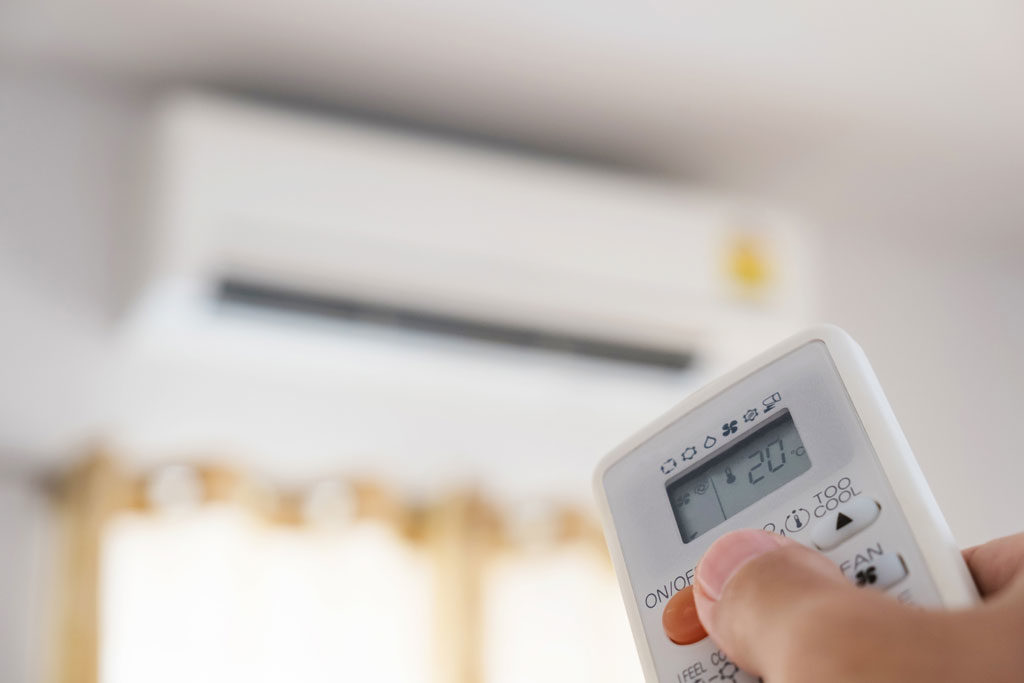
Warm weather is great for barbecues, days at the beach, and evening campfires, but not so great on your home’s cooling system. Some homeowners fight the urge to turn on their air conditioning, and others let it run, dreading their summer utility bills. Thankfully, there are options that will save you from the heat, give you peace of mind, and treat your pockets kindly. Here are some top tips for summer cooling:
Protect your home and equipment
Weatherizing your home isn’t just for winter. An air-tight system will save you money on cooling. Caulk your windows and doors so the cool air your system produces won’t escape. Up to 30 percent of home heat in the summer comes in through the windows. Use blinds, curtains, and drapes to block out the sun and keep daytime heat out.
Schedule maintenance with a qualified technician before the heat of summer. If you regularly service your HVAC equipment, it’ll last longer and run more efficiently. Proper DIY maintenance like keeping your outdoor unit clear of debris and regularly dusting your home will ensure dirt and dust don’t infiltrate your system and ruin your equipment. Check your filter once a month and replace as needed. If your air filter collects dust and debris, airflow will be restricted, and your unit will have to work harder.
Distribute air
Close off any unused rooms so you are only cooling the areas you use frequently, but make sure the rest of your home is well ventilated. Check that your supply and return registers aren’t blocked by furniture. Flip the switch on the motor housing of your ceiling fans to summer mode (counterclockwise). The blades will push the air straight down and create a wind-chill effect. Turn off your cooling system and open your windows in the evening to save money and provide your home with fresh air. Consider other indoor air quality solutions like an air exchanger or cleaner.
Avoid heat-producing appliances
Appliances that use heat can waste the cold air your cooling system produces. Instead of cooking in your oven, enjoy the outdoors by grilling more often. Air-dry your dishes and laundry instead of using the dishwasher and dryer. Take cool showers so your water heater won’t have to run as often. In addition, keep heat-producing appliances away from your thermostat so it reads the temperature accurately and doesn’t overcompensate.
If you’re still using incandescent light bulbs, replace them with LED lights. Incandescent bulbs create light by using electricity to heat up a filament until it glows. Ninety percent of the energy used to light up the filament is wasted on heat. LEDs create light through a cold process, producing little amounts of heat in comparison.
Take advantage of technology
According to the EPA, when used properly, a programmable thermostat can save you up to $180 a year in energy costs. With a programmable thermostat, you can set the temperature of your home higher when you leave for work or a trip and lower it shortly before you return.
Replace your old unit with a more efficient system. It may be more expensive up front, but a new air conditioner with a high SEER rating can give you maximum energy savings and reduce your carbon footprint. You’ll also enjoy peace of mind knowing your unit won’t likely break down on the hottest days of summer.
WestAIR Heating & Cooling provides energy-efficient Rheem A/C units, smart thermostats, filters, and other cooling solutions. We offer annual service maintenance and a variety of specials so you can save money and keep your HVAC system running smoothly. Contact us to learn more.
This entry was posted in AC,Air Conditioning,Cooling,Energy Savings and tagged A/C, A/C tune-up, Air circulation, Air cleaner, air conditioning, Air filters, Comfortable, Cooling, Cooling system, Energy efficiency, Energy savings, Grilling out, Hot days, HVAC, Indoor air quality, Indoor air quality solutions, Window curtains
What is Automatic Zoning?
Posted on by WestAIR Heating & Cooling
 Artificial Intelligence. Self-Driving cars. Virtual Assistants. Every day, advancements in technology amaze and inspire us to automate and simplify our lives. So, what’s stopping you from getting smart with your HVAC system?
Artificial Intelligence. Self-Driving cars. Virtual Assistants. Every day, advancements in technology amaze and inspire us to automate and simplify our lives. So, what’s stopping you from getting smart with your HVAC system?
Home Automation
Automatic zoning or smart zoning, a category of smart home technology, allows you to control the temperature of each living space or zone in your home. Your bedroom or living room are primary zones that most people like to set to different temperatures. The issue? Older thermostats read the temperature in the middle of the home. Basements end up feeling cooler while second story rooms become warmer. Automatic zoning uses motorized dampers inside your ductwork that control the airflow to each zone. Select a zone and set a comfortable temperature using your smartphone or other device. The control panel in your HVAC system receives the information from your thermostat to adjust the dampers and temperature to your desired settings. It’s that simple!
New Technology
Zoning your HVAC system is not necessarily new technology but monitoring your setting from a device is. In the past, homeowners installed multiple thermostats or HVAC units to control these systems. Now you can regulate the temperature through one system in one location without ever touching a thermostat. If a room is not in use, automatic zoning reroutes the air to save energy. You can control all these settings with your phone, online, or right on the thermostat. Manufacturers create smart thermostats to sync with your Wi-Fi and easily customize to your lifestyle. Adjust your home’s temperature from anywhere!
Add-on Features
When you install automatic zoning, you can add more features to your heating and cooling system, too.
Fresh Air Intake
Bring fresh air into your home while using your heating or cooling unit.
Air Cleaner
Install an air cleaner to remove pollutants such as dust, pollen, and contaminants throughout the home.
Humidifier
Add a humidifier to make cold seasons more comfortable while preserving your home. Dry air cracks and warps the woodwork and building materials.
WestAIR can create a comfortable atmosphere for any room in your home. Save on energy bills by installing energy efficient automatic zoning. Contact us today to learn more.
This entry was posted in AC,Air Conditioning,Cooling,Furnace,Heating,Indoor Air Quality and tagged Air cleaner, Automatic zoning, Basement, Bedroom, Damper, Ductwork, Energy efficiency, Fresh air intake, Heating and cooling, Home automation, Humidifier, HVAC zoning, Living room, Smart home, Smart thermostat, Smart zoning, Thermostat
How to Reduce Indoor Humidity
Posted on by WestAIR Heating & Cooling
 In the Midwest, we feel the weather to the extremes – below zero and dry in the winter to 90+ degrees and humid in the summer. For those summer months, many of us cool our homes with some sort of air conditioning, but the humidity still sticks around the house. Extra moisture makes the air feel warmer and damages your walls, floors, furniture, and cabinets. You can effectively reduce indoor humidity with three different products, but which one will work best for you?
In the Midwest, we feel the weather to the extremes – below zero and dry in the winter to 90+ degrees and humid in the summer. For those summer months, many of us cool our homes with some sort of air conditioning, but the humidity still sticks around the house. Extra moisture makes the air feel warmer and damages your walls, floors, furniture, and cabinets. You can effectively reduce indoor humidity with three different products, but which one will work best for you?
Portable Dehumidifier
These units plug into any room and are suitable for homes with poor air circulation or no ventilation. Spaces like the basement, kitchen, or bathroom become susceptible to mold. Dishwashers, dryers, and showers add extra heat and moisture to your home. Portable dehumidifiers are the smartest solution for rooms that smell of must or feel damp and stale.
Whole House Dehumidifier
This system works best for old houses that use ductwork for heating and cooling. Older houses are prone to leaks and mold. If you often find condensation on your walls or you’ve had problems with mold before, you should consider a whole house dehumidifier. If you or a family member has asthma or chronic respiratory issues, humidity can aggravate your symptoms. Install a whole house dehumidifier to reduce moisture and improve your health.
Air Exchanger
An air exchanger has two channels of air flow, ventilating your home with fresh, filtered air. One channel pulls outside air into the home, while the other pushes stale air out. This exchange removes humid air or pollutants. The air exchanger works seamlessly with your heating & cooling equipment to improve air quality. If you own a newer home and want a constant supply of fresh air, consider adding an air exchanger to your HVAC system.
Contact WestAIR Heating and Cooling to learn more about reducing humidity, improving indoor air quality, and installing an air exchanger in your home.
This entry was posted in AC,Air Conditioning,Cooling,Energy Savings,Indoor Air Quality and tagged Air, Air cleaner, Air exchanger, Allergies, Asthma, Basement, Bathroom, Breath better, Condensation, Dehumidifier, Hot weather, Humid, Humidity, Indoor humidity, Kitchen, Mold, Portable dehumidifier, Summer, Toxic, Whole home dehumidifier
Money-Saving Tips to Keep your Home Cool this Summer
Posted on by WestAIR Heating & Cooling
Have you switched your thermostat over to cool yet this spring? When the weather turns hot and sticky, you may be tempted to crank the a/c. Give yourself some peace of mind and follow these money-saving tips to keep your home comfortable this summer.
A/C Maintenance
Avoid an expensive breakdown during summer’s scorching hot days. HVAC technicians are working their peak seasons, so wait times could be longer than you’d like. Instead, schedule your a/c tune-up to keep your air conditioner working at top performance. Technicians will clean parts covered with dust and debris, fill coolant levels, tighten electrical connections, and more. You should always change your air filter every month during cooling (and heating months), too!
Thermostat
Program your thermostat this summer to the warmest comfortable temperature, and even warmer while you are away. However, while you’re away, don’t turn your air conditioner off on extremely hot days. The materials in your home will retain heat, so keeping the room cooler will make it easier for your air conditioner to run. On colder nights, you can turn off your cooling unit and open the windows. Then close them right away in the morning to trap the cooler air inside.
Windows
Use curtains and shades during the day to block direct sunrays from heating your home. Exterior awnings can reduce extra heat by up to 75 percent on west-facing windows! It’s also important to caulk or weather strip any drafty windows.
Air Circulation
Maintain maximum efficiency by inspecting your air ducts for any leaks. Keep cool air circulating in the right areas by closing doors and vents to any rooms not in use. Using an exhaust fan in bathrooms or kitchens also removes heat and moisture from your home, which helps prevent wall damage and mold.
Appliances
Save money on your electric and water bills by less frequent use of appliances that add heat to the house. Avoid using the oven by preparing cold meals or grilling outside on hot days. Air-dry your dishes and laundry. Your water heater is another culprit for extra heat, so try taking shorter and cooler showers on warm days as well.
Plant trees
Planting tall trees can cool your house naturally. Suburban and urban areas are warmer than rural ones because of the heat absorbed by roads, buildings, and parking lots. Planting tall trees to block windows can save you up to 35 percent annually on energy costs while keeping your home cooler and giving your yard extra curb appeal.
Contact WestAIR Heating & Cooling for your annual a/c tune-up and personalized suggestions to keep your home comfortable this summer!
This entry was posted in AC,Air Conditioning,Cooling and tagged A/C maintenance, A/C tune-up, A/C tune-up, Air circulation, Air conditioner maintenance, Air conditioner tune-up, Air ducts, Air filters, Comfortable, Cooling system, Energy efficiency, Exhaust fan, Grilling out, Heating and cooling, Hot days, Humid days, HVAC technician, Plant trees, Summer days, Thermostat, Tune-up, Window curtains, Window shadows, Window tips
Extend the Life of your HVAC Equipment
Posted on by WestAIR Heating & Cooling
Having a working furnace and air conditioner is crucial during the winter and steamy summer days. Don’t run it and forget about it, as wear and tear is inevitable. You can save on costly replacements or repairs through proper maintenance. Extend the life of your HVAC equipment by following these steps.
Heating & Cooling Tips
1. Follow manufacturer instructions.
2. Have your systems checked every year by a qualified service technician. It’s best to schedule maintenance in the spring and fall. Technicians are busy in the hot and cold months, and you don’t want to wait until there’s something wrong.
3. Check your filters. Replace your filters every 30 to 60 days. If you have a permanent filter, clean it with mild detergent every 30 to 60 days. This is the most important step to increase the life of your equipment. Dirty filters make heating and cooling units work harder, which will shorten the life with use.
4. Keep your doors and windows closed. Your air conditioner and heater will work harder when there is more air to circulate. Make each space with ventilation smaller by closing your doors. This is the also the case for houses with boilers or window air conditioners. Rather than labor to regulate air temperature in the whole house, your a/c only needs to cool the individual room. With a boiler system, it’s efficient to close off rooms without a radiator.
5. Caulk and weather-strip air gaps on windows. This step is good for your wallet and your HVAC equipment. Old houses are especially drafty, so locate the air leaks by finding damaged glazing or old caulking. Another trick is to turn off all appliances and light an incense stick in each room. Turn on your exhaust vent if you have one. Then hold your incense stick close to windows, doors, and walls for a noticeable change in the smoke. If you have drafty doors, invest in some door draft blockers.
6. Use your thermostat. It’s a myth that you should keep your thermostat at a steady temperature. Most of the time, your furnace will be working harder to maintain the heat at a steady rate. Instead, program your thermostat for a comfortable temperature while you are home and ten degrees less while you are away. However, fidgeting with the thermostat will be less efficient, even if it seems harmless to put it up or down a degree or two. Keep it on a consistent schedule.
Energy Efficiency
Winter
1. Open window shades when windows are facing the sun. Let the sun warm your house naturally, putting less work on your furnace. The vitamin D is good for you this time of year!
2. Take advantage of using your oven. Slow cook your chicken and oven roast your veggies. The extra warmth will give your furnace a break. Your oven will be working two jobs at once without the added cost.
Summer
1. Close window shades facing the sun. Opposite of wintertime, you want to block the sun from adding extra heat to your house. Make sure to put your plants outside so they don’t suffer from the lack of sun!
2. Be smart with your other appliances. When you are doing laundry, hang up your clothes on a line to save energy or strain on your a/c. Why work an appliance that uses heat when it’s already hot outdoors? Washing clothing shouldn’t be an issue, though, if you stick to cold water. If it’s humid out, dry your clothes during the coolest part of the day: around dawn. Same goes for dishwashers.
3. Use your exhaust fans when cooking. Whether you plan on using the oven or stovetop for dinner, turn on the exhaust fan to let out the excess moisture and heat. Or maybe fix a cold sandwich or salad. In return, your air conditioner won’t have to work as hard! Same goes for your bathroom, but not everyone likes cold showers!
Annual Service Maintenance
Spring is around the corner, so it’s time to schedule your maintenance visit with WestAir Heating & Cooling.
Our technician’s maintenance list will take care of most things you cannot do yourself to ensure your equipment is running smoothly for summer and winter:
Annual Service Maintenance list:
• Clean furnace and check operation/filter
• Clean air conditioner and check operation
• Clean outdoor condenser and check refrigerant level
• Clean air exchanger filters and core
• Check radiant in-floor pressures and go over system
• Check humidifier filter and drain line
• Check unit heater operation
• Clean fireplace and check operation
Contact us for more information on heating, cooling, or our service maintenance!
This entry was posted in AC,Air Conditioning,Cooling,Furnace,Heating,Winter and tagged A/C, A/C, Air conditioner, Air filters, Air quality, Annual check-up, Caulk, Clogged filter, Cold air, Cooking, Cooling, Cost, Dirty, Dishwasher, Door draft stopper, Doors, Drafty windows, Dryer, Efficiency, Energy efficient, Exhaust fan, Fall, Filter, Filters, Furnace, Furnace filter, Heater, Heating, HVAC, Laundry, Maintenance, Quality, Save money, Shower, Spring, Summer, Sunshine, Sustainability, Thermostat, Windows, Winter
Why You Should Change Your Furnace Filter Often
Posted on by WestAIR Heating & Cooling
Changing your furnace filter seems to be an easily forgotten task. HVAC companies try their hardest to remind you to do these things, but do you know why you should change it more often than you think?
Maintenance
Getting an oil change for your car is as important as changing the furnace filter for your house. It simply extends the life of your equipment. A dirty filter means that less air is circulating, which then means that your furnace is working harder to keep your house warm. Over time, having a furnace go into overdrive for too long can overheat the system or break down the entire unit. This is not something you do want to deal with in subzero temperatures.
A little dirt can do a lot of damage. If your furnace filter is dirty, not only will it make your HVAC unit work harder, but it will also make your heating bills go up over time. All the extra effort that this heater is putting out digs a deeper hole into your wallet. While a new furnace filter might cost money, ignoring it will cost more in your gas bill, except you’re doing more damage than good by trying to be frugal.
Air Filter Quality
Skip the fancy furnace filters. A furnace filter is designed to protect your furnace, not improve indoor air quality. Some people swear by these special filters, but you’ll most likely have to run your furnace fan year-round to get the benefit of a high-efficiency filter. Extra work and extra care (replacing them often) will cost you more in the end.
There is a happy balance that you could achieve between cost and efficiency. For homeowners, we recommend purchasing a MERV 7 or 8 pleated filter, which traps 80 to 95 percent of air particles. If you are looking to get rid of pollutants and breathe cleaner air, consider getting an air cleaner instead.
When to call your HVAC technician
– Unit fails to turn back on
– Noisy or slow fan
– Bent fins
– Coils are extra dusty
Remember to change your furnace filter every month when fan is in use for heating and cooling seasons.
Got more furnace questions? Call us at (763) 498-8071.
This entry was posted in AC,Air Conditioning,Cooling,Energy Savings,Furnace,Heating,Indoor Air Quality,Tips and tagged Air filters, Air quality, Clogged filter, Cold air, Cost, Dirty, Efficiency, Filter, Filters, Furnace, Furnace filter, Heater, Heating, HVAC, Maintenance, Quality, Save money, Winter
Subscribe to Our Blog
With RSS feeds, you don't have to visit our site everyday to keep up to date. Simply subscribe to our blog via RSS or Email and our posts will come to you!
Search Blog Posts
Categories
Archives
- April 2024 (1)
- February 2024 (1)
- January 2024 (1)
- February 2023 (1)
- January 2023 (1)
- December 2022 (1)
- November 2022 (1)
- October 2022 (1)
- September 2022 (1)
- August 2022 (1)
- July 2022 (1)
- June 2022 (1)
- May 2022 (1)
- April 2022 (1)
- March 2022 (1)
- February 2022 (2)
- December 2021 (1)
- November 2021 (1)
- October 2021 (1)
- September 2021 (1)
- August 2021 (1)
- July 2021 (1)
- June 2021 (1)
- May 2021 (1)
- April 2021 (1)
- March 2021 (2)
- January 2021 (1)
- December 2020 (1)
- November 2020 (1)
- October 2020 (1)
- September 2020 (1)
- August 2020 (1)
- July 2020 (1)
- June 2020 (1)
- May 2020 (1)
- April 2020 (1)
- March 2020 (1)
- February 2020 (2)
- November 2019 (1)
- August 2019 (2)
- June 2019 (1)
- May 2019 (1)
- April 2019 (1)
- March 2019 (1)
- February 2019 (1)
- January 2019 (1)
- December 2018 (1)
- November 2018 (1)
- October 2018 (1)
- September 2018 (1)
- August 2018 (2)
- July 2018 (1)
- May 2018 (1)
- April 2018 (1)
- March 2018 (1)
- February 2018 (1)
- January 2018 (1)
- December 2017 (3)
- November 2017 (2)
- October 2017 (2)
- September 2017 (2)
- August 2017 (1)
- July 2017 (2)
- June 2017 (3)
- May 2017 (2)
- January 2017 (4)
- November 2016 (1)
- September 2016 (3)
- July 2016 (2)
- June 2016 (2)
- May 2016 (4)
- April 2016 (1)
- March 2016 (2)
- February 2016 (2)
- January 2016 (1)
- August 2015 (1)
- July 2015 (1)
- June 2015 (3)
- May 2015 (1)
- July 2014 (2)
- June 2014 (1)
- April 2014 (1)
- March 2014 (1)
- February 2014 (2)
- October 2013 (1)
- May 2013 (1)
- March 2013 (1)
- February 2013 (1)
- August 2012 (1)
- July 2012 (2)
- June 2012 (2)
- May 2012 (2)
- March 2012 (1)
- February 2012 (1)
- December 2011 (1)
- November 2011 (1)
- October 2011 (1)
- September 2011 (1)
- August 2011 (1)
- June 2011 (1)
- May 2011 (1)
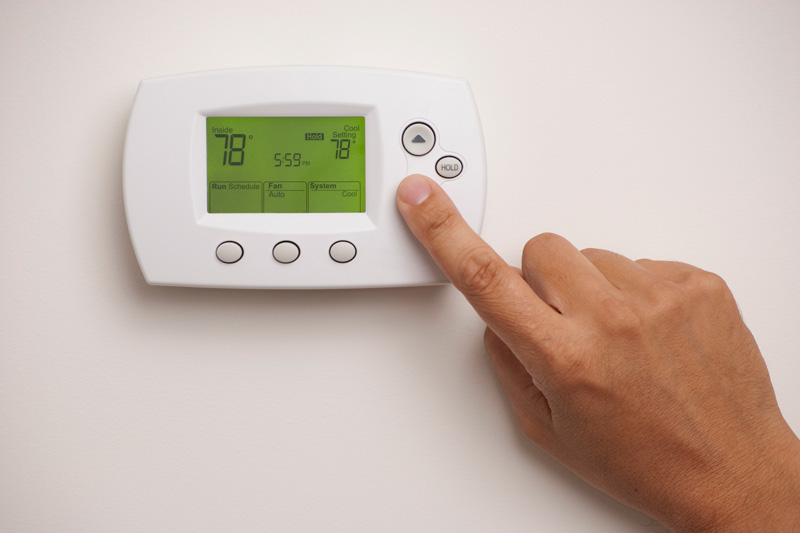
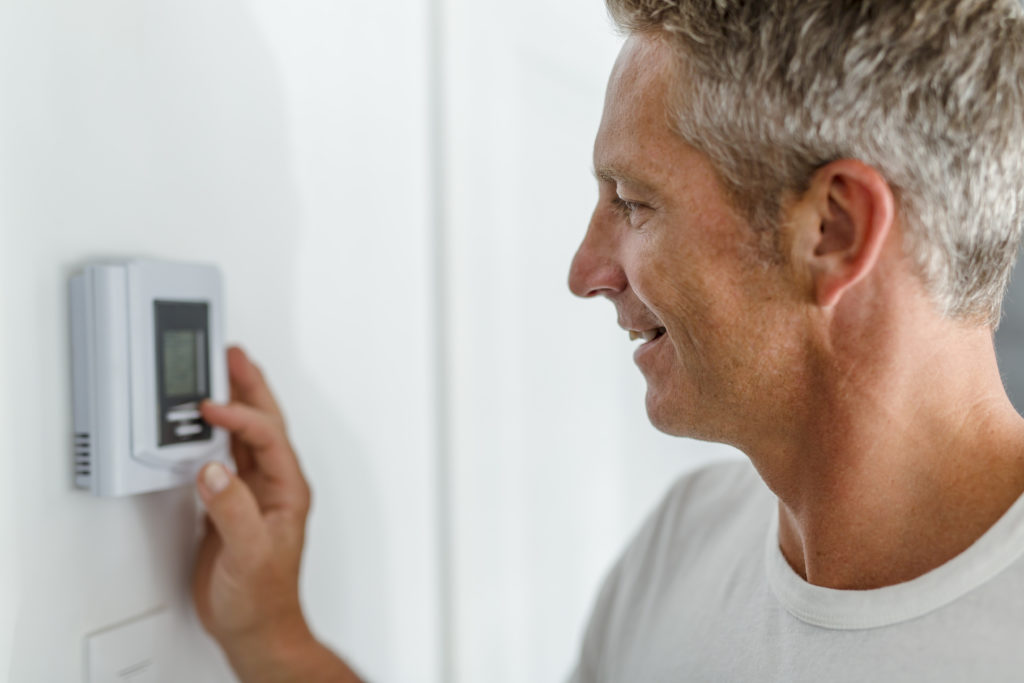
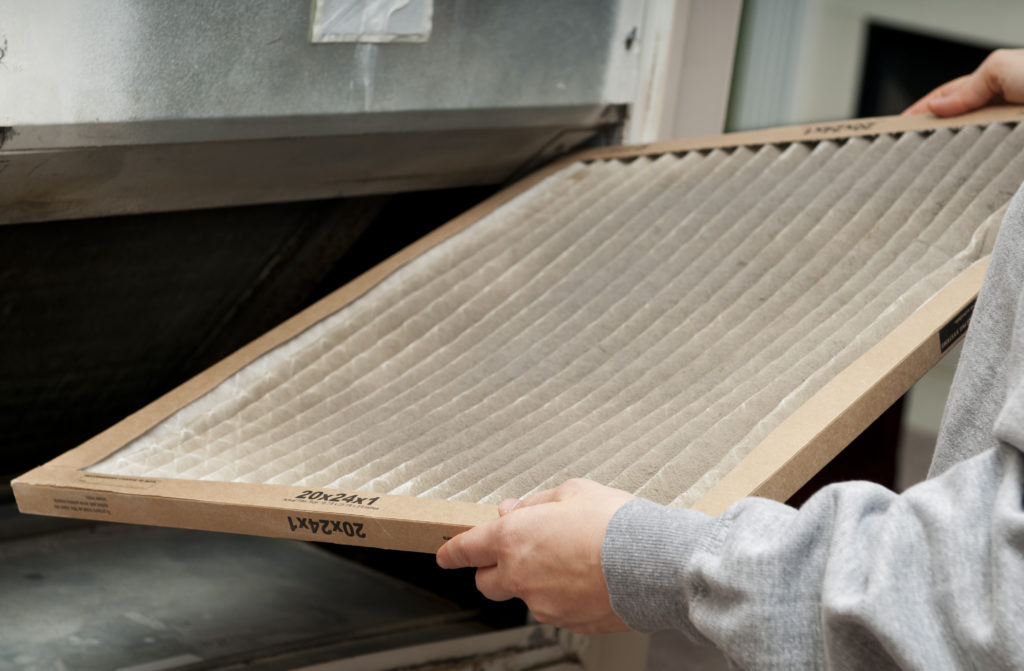
 Subscribe
Subscribe Subscribe
Subscribe